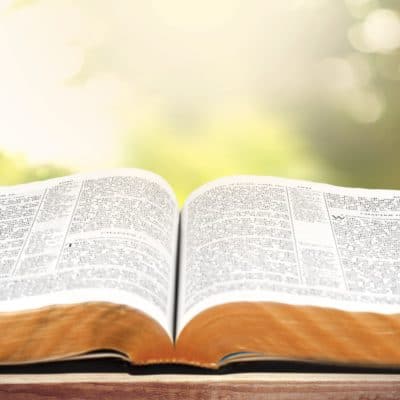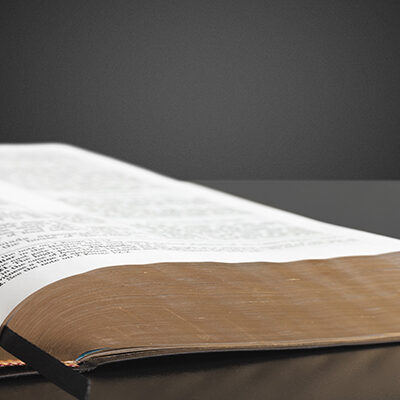Understanding the Events Before Christ’s Sacrifice
It is obvious that Jesus is the Lamb of God and the true Lamb of the Passover. Israel’s rescue from Egypt was simply a model of God’s ultimate rescue of all mankind.
John 1:1, “In the beginning was the Word, and the Word was with God, and the Word was God.” (NKJV)
John 1:14, “And the Word became flesh and dwelt among us, and we beheld His glory, the glory as of the only begotten of the Father, full of grace and truth.”
John 1:29, “The next day John saw Jesus coming toward him, and said, ‘Behold! The Lamb of God who takes away the sin of the world!’”
Jesus’ sacrifice, as applied to believers, will allow the death penalty for sin to “pass over” them. However, the day commemorating this event, the New Testament Passover or Lord’s Supper, began with emphasis on brotherly love and fellowship. The evening before Christ died He celebrated a special service with His disciples.
John 13:1-4, “Now before the Feast of the Passover, when Jesus knew that His hour had come that He should depart from this world to the Father, having loved His own who were in the world, He loved them to the end.
“And supper being ended, the devil having already put it into the heart of Judas Iscariot, Simon’s son, to betray Him, Jesus, knowing that the Father had given all things into His hands, and that He had come from God and was going to God, rose from supper and laid aside His garments, took a towel and girded Himself.”
These were the final moments Jesus would have with His disciples before His painful death on the stake at the exact time the physical Passover lamb was being sacrificed. It was a special moment in history for His disciples and Christianity. This meal was all about love and loyalty among those attending, especially after Judas was commanded to leave.
John 13:26-27, “Jesus answered, ‘It is he to whom I shall give a piece of bread when I have dipped it.’ And having dipped the bread, He gave it to Judas Iscariot, the son of Simon.
“Now after the piece of bread, Satan entered him. Then Jesus said to him, ‘What you do, do quickly.’”
After Judas’ departure, Jesus focused their attention on love for him and each other. Before Jesus’ horrible execution he wanted them to all bond together. These events, including the foot washing, were the beginning of a movement that would turn the world upside down. The most profound and significant historical movement in the history of the world was forged in brotherly love on this night.
John 13:31-35, “So, when he had gone out, Jesus said, ‘Now the Son of Man is glorified, and God is glorified in Him.
“If God is glorified in Him, God will also glorify Him in Himself, and glorify Him immediately.
“Little children, I shall be with you a little while longer. You will seek Me; and as I said to the Jews, ‘Where I am going, you cannot come,’ so now I say to you.
“A new commandment I give to you, that you love one another; as I have loved you, that you also love one another.
“By this all will know that you are My disciples, if you have love for one another.”
Christ was preparing to save all mankind through His death as the Passover Lamb of God. This is a special moment for all of us. The celebration of brotherhood and comradeship was not just for Jesus and the disciples, but for us as well; He was praying for all those who are converted, who would someday read the words of the New Testament Apostles.
John 17:20-21, “I do not pray for these alone, but also for those who will believe in Me through their word;
“That they all may be one, as You, Father, are in Me, and I in You; that they also may be one in Us, that the world may believe that You sent Me.”
We may all be unified and at one with God the Father and Jesus the Messiah because of the work of His disciples. This of course includes their final meal, the Lord’s Supper, which we often call the New Testament Passover.
John 15:12-15, “This is My commandment, that you love one another as I have loved you.
“Greater love has no one than this, than to lay down one’s life for his friends.
“You are My friends if you do whatever I command you.
“No longer do I call you servants, for a servant does not know what his master is doing; but I have called you friends, for all things that I heard from My Father I have made known to you.”
The Importance of Our Lives After Christ’s Sacrifice
Believers now have a new relationship with Jesus Christ, God, and the “WORD” or the executive member of the God family. We are now friends of Jesus and are like His younger siblings. As such we have a responsibility to grow to become more like Christ.
A few hours after Christ’s death and execution the sun set and the Days of Unleavened Bread began. The Jewish nation began to eat the sacrificed lamb symbolic of Jesus the true lamb. The Days of Unleavened Bread were kept by the true believers, both Jew and gentile. These days represent our efforts to become pure and unleavened from sin because of our love for Jesus our Savior. We do it because of our love and appreciation for His sacrifice. Here is proof that even the gentiles who were many miles away from Jerusalem kept the days of Unleavened Bread.
1 Corinthians 5:6-8, “Your glorying is not good. Do you not know that a little leaven leavens the whole lump?
“Therefore purge out the old leaven, that you may be a new lump, since you truly are unleavened. For indeed Christ, our Passover, was sacrificed for us.
“Therefore let us keep the Feast, not with old leaven, nor with the leaven of malice and wickedness, but with the unleavened bread of sincerity and truth.”
This verse proves that all believers should keep these Holy Days, realizing that putting out the literal leaven is symbolic of purifying ourselves of malice and wickedness. Paul says that because Christ our Passover died for us we should keep these seven days and put away wickedness and sin (leaven). Further, what did Jesus say He wanted us believers to do at His Last Supper? He said obey the deep, spiritual Laws of God!
John 14:15-16, “If you love Me, keep My commandments.
“And I will pray the Father, and He will give you another Helper, that He may abide with you forever––”
Jesus said keep the Ten Commandments and He would also send the Comforter to help us to want to obey. Human nature alone would not wish to obey God. God arranged for Jesus’ ordeal to be over by the Days of Unleavened Bread which are the Holy Days that follow the Passover Lamb sacrifice. Israel ate the sacrifice with Unleavened Bread only a few hours after the lamb’s death.
John 19:30-32, “So when Jesus had received the sour wine, He said, ‘It is finished!’ And bowing His head, He gave up His spirit.
“Therefore, because it was the Preparation Day, that the bodies should not remain on the cross on the Sabbath (for that Sabbath was a high [holy] day), the Jews asked Pilate that their legs might be broken, and that they might be taken away.” That High Sabbath was the first day of Unleavened Bread.
Taking The Lord’s Supper With Serious Self-Examination
The sacrifice of Jesus was very difficult for both the Father and the Son. God demands that we show proper respect for so great a price paid to cover our sins by His Son. If a person does not pay the proper respect for all that the Father gave for us––His only Son––he is in danger. Note Paul’s warning to the out of control Corinthian congregation:
1 Corinthians 11:27-29, “Therefore whoever eats this bread or drinks this cup of the Lord in an unworthy manner will be guilty of the body and blood of the Lord.
“But let a man examine himself, and so let him eat of the bread and drink of the cup.
“For he who eats and drinks in an unworthy manner eats and drinks judgment to himself, not discerning the Lord’s body.”
No one is truly worthy of Christ’s sacrifice but we are expected to take it in a worthy, respectful manner. Those who do not are in danger.
1 Corinthians 11:30-31, “For this reason many are weak and sick among you, and many sleep.
“For if we would judge ourselves, we would not be judged.”
If we do not want God to judge us we must learn to judge ourselves. All of us should do some self-examinations and evaluations before we take the Lord’s Supper. For if we would judge ourselves, we should not be judged. Paul is delivering a strong warning to all of us.
It would seem wise to take the days before the New Testament Passover to investigate our evil human nature and show appreciation for His awesome love and sacrifice for us unworthy human beings. We must repent, ask for mercy, forgiveness and insight into our hidden motives for the things we do. We need to be humble and lovingly appreciative. We all need to give ourselves a regular check up.
2 Corinthians 13:5-6, “Examine yourselves, whether ye be in the faith; prove your own selves. Know ye not your own selves, how that Jesus Christ is in you, except ye be reprobates.
“But I trust that ye shall know that we are not reprobates.” (KJV)
If we find no evidence of spiritual growth we need to repent and pray for God’s assistance. God will never forsake us, but we need to keep trying.
Jesus emphasized brotherly love and our closeness to God at the Last Supper before His death. Paul emphasizes being pure and unleavened from sin after Christ’s death. We must do our best during the coming year to please God by our attitudes and behavior.
Examining our behavior and thoughts will help us to repent and to appreciate all the sins Jesus’ blood has covered for us.







